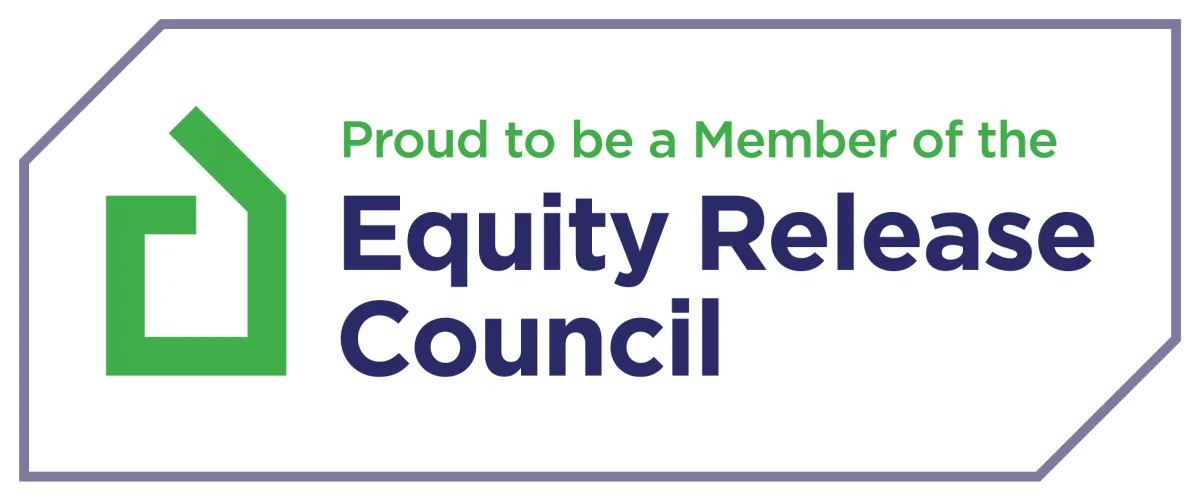Later-Life Options
Understanding Later-Life Options
Explore flexible lending solutions tailored for your retirement.
More Choice & Flexibility for Homeowners Aged 55+
Later life lending has evolved significantly. Whether you're looking to release equity, reduce monthly payments, or simply borrow in a way that suits your retirement plans, there are now several sophisticated options available.
From roll up lifetime mortgages and interest serviced loans to retirement interest only and traditional mortgages tailored for older applicants. This guide explains how each one works, empowering you to make an informed decision based on your unique needs and goals.

Types of Later-Life Lending
We break down the technical terms into clear, understandable options.

Lifetime Mortgages
Roll-up Interest
A standard lifetime mortgage is the most common type of equity release product, designed for homeowners aged 55 and over who want to unlock some of the value in their property without having to move out. With this type of loan, you receive a tax-free lump sum or smaller amounts over time, and there are no required monthly repayments. Instead, the interest is added to the loan balance — a process known as roll-up interest — and everything is repaid when you pass away or move into long-term care.
Because no monthly repayments are made, your income is not assessed and lenders tend to be more flexible when considering clients' credit histories and financial positions. The loan and interest rate are calculated using factors such as your age and the property value.

Lifetime Mortgages
Interest Serviced
A serviced interest lifetime mortgage works in a similar way to a standard lifetime mortgage, but with one key difference: instead of letting the interest roll up, you make regular monthly payments to cover some or all of the interest as it accrues. This helps to reduce the overall cost of the loan over time and preserve more equity in your home for the future. It can be a flexible way to manage borrowing in later life while still benefiting from the key features of equity release.
Many plans allow you to choose how much interest you want to pay each month, and offer the flexibility to stop payments if your circumstances change. You still retain full ownership of your home, and the loan is only repaid when you pass away or move into long-term care. Serviced interest plans are ideal for those who have some income in retirement and want to keep their borrowing more manageable in the long term.

Lifetime Mortgages
Drawdown Mortgage
A lifetime mortgage with a drawdown facility gives you an agreed overall loan amount, but instead of taking it all as a lump sum, you can release smaller amounts (or “drawdowns”) when you need them. This approach offers greater flexibility and can help reduce the total interest you pay over time, as interest is only charged on the funds you’ve actually withdrawn, not the full facility. It’s ideal for homeowners who want access to extra funds but don’t need all the money upfront — for example, to cover ongoing costs, home improvements, or gifts to family.
With a drawdown lifetime mortgage, you still benefit from all the key features of equity release, including the no negative equity guarantee and the ability to stay in your home for life. Many people choose this type of plan because it allows them to manage their borrowing more effectively, releasing funds as and when required while keeping future costs under control. It can also reduce the impact on means-tested benefits compared to taking a large lump sum, as smaller withdrawals are less likely to affect your financial thresholds.

Retirement Interest Only (RIO)
A Retirement Interest-Only (RIO) mortgage is a later-life lending option designed for homeowners typically aged 55 or over who want to borrow against their property while making regular monthly interest payments. Unlike standard interest-only mortgages, there’s no fixed end date — the loan only needs to be repaid when you pass away or move into long-term care. Because you're paying the interest each month, the amount you owe doesn't increase over time, which helps preserve the equity in your home.
To qualify for a RIO mortgage, you’ll need to prove that you can afford the monthly interest payments for the rest of your life, usually through pension income or other retirement funds. These mortgages can be a good fit for those who want to release funds in later life but prefer a more traditional structure, and who are comfortable committing to ongoing payments. They're also useful for people coming to the end of an interest-only mortgage term who need a long-term solution without having to repay the capital.

Retirement Mortgage
A retirement mortgage is a type of standard residential mortgage available to older borrowers, typically into their 60s or 70s and beyond. Unlike equity release products, a retirement mortgage works much like a traditional repayment mortgage — where you make monthly payments covering both interest and capital. The key difference is that the lender takes your retirement income (such as pensions or investments) into account when assessing affordability, allowing you to borrow later in life and repay the loan over a fixed term.
Retirement mortgages can be a good option for those who want to borrow into later life but maintain full repayment of the loan during the mortgage term. They’re commonly used to buy a new home, refinance an existing mortgage, or release funds for lifestyle needs — all while gradually paying off the balance. Lenders may have upper age limits at the start or end of the term, but options have become more flexible in recent years as the market has adapted to the needs of older borrowers.
Are There Alternatives to Equity Release?
Equity release isn't the only way to unlock money in later life, and it is important to consider all your options before making a decision.

Downsizing
Some people choose to downsize to a smaller or more affordable property, which can release capital without taking on any debt.

Savings & Assets
Depending on your goals, using existing savings investments or even local authority grants might also be worth exploring.

Family Support
Others may be able to get financial support from family, whether as a gift or a private arrangement.

Why Independent Advice Matters
That’s why it’s essential to speak with a qualified, independent adviser who can look at the bigger picture and help you weigh up all the pros and cons.

Holistic View
An impartial adviser will take the time to understand your personal circumstances.

Every Option Explored
We talk you through every option — including alternatives to equity release.

Future Proofing
We ensure you make a decision that’s right for you and your family, both now and in the future.
Get the right advice and the confidence that comes with it
Take the first step towards financial clarity today. There is no obligation and no pressure. Just a friendly conversation to answer your questions.
Fees
A Lifetime Mortgage may reduce the value of your estate and could affect your entitlement to benefits. To understand the features and risks please ask us for a personalised illustration.
There will be a fee for mortgage advice. The precise amount will depend upon your circumstances but we estimate that it will be £1495 for an equity release/retirement mortgage.
Important Information
Aspect Mortgages Limited is authorised and regulated by the Financial Conduct Authority and is entered on the Financial Services Register (https://register.fca.org.uk/s/) under reference 305352. The FCA do not regulate Business Buy to Let Mortgages or Estate Planning.
As independent advisers we have access to the whole market, except for deals that you can only obtain by going direct to a lender. Registered in England and Wales No: 051013801. 16 St Thomas' Road, Chorley, PR7 1HR.
Your home may be repossessed if you do not keep up repayments on your mortgage.
© Copyright 2026 Aspect Mortgages Limited


